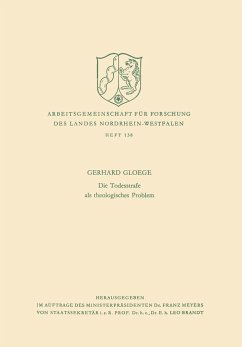The problem of the death penalty must be strictly kept within the theolo gical horizon. A mere plea either for or against the death penalty would only obscure the essential question. 1. There are three basic positions in the present theological discussion. 1. The ecclesiological position first conceived in the early church was used by Augustine in his intercession for the indicted Donatists, was system atically developed by Thomas Aquinas according to the church's dogmatic decisions and is presently being reinterpreted in the moral theology of the Roman Catholic Church. The presupposition of this ecclesiological position is the view of the church as a community which must protect itself against lawbreakers. While F. X. Linsenmann recommended the abolition of the death penalty, G. Ermecke justifies it, because the accused absented hirnself from the field of legality. 2. The theological position is represented by theologians adhering to the position of the reformers. P. Althaus, W.Künneth, and E. Brunner justify the necessity of the death penalty with the authority of the State as a God given institution (Gen. 9, 6;Rom. 13,4). W.Elert, and especially H. Thielicke reject this view due to the secularization of the modern State. Their common presupposition is the concept that the criminallaw of the State is based on the order of God the Creator.





